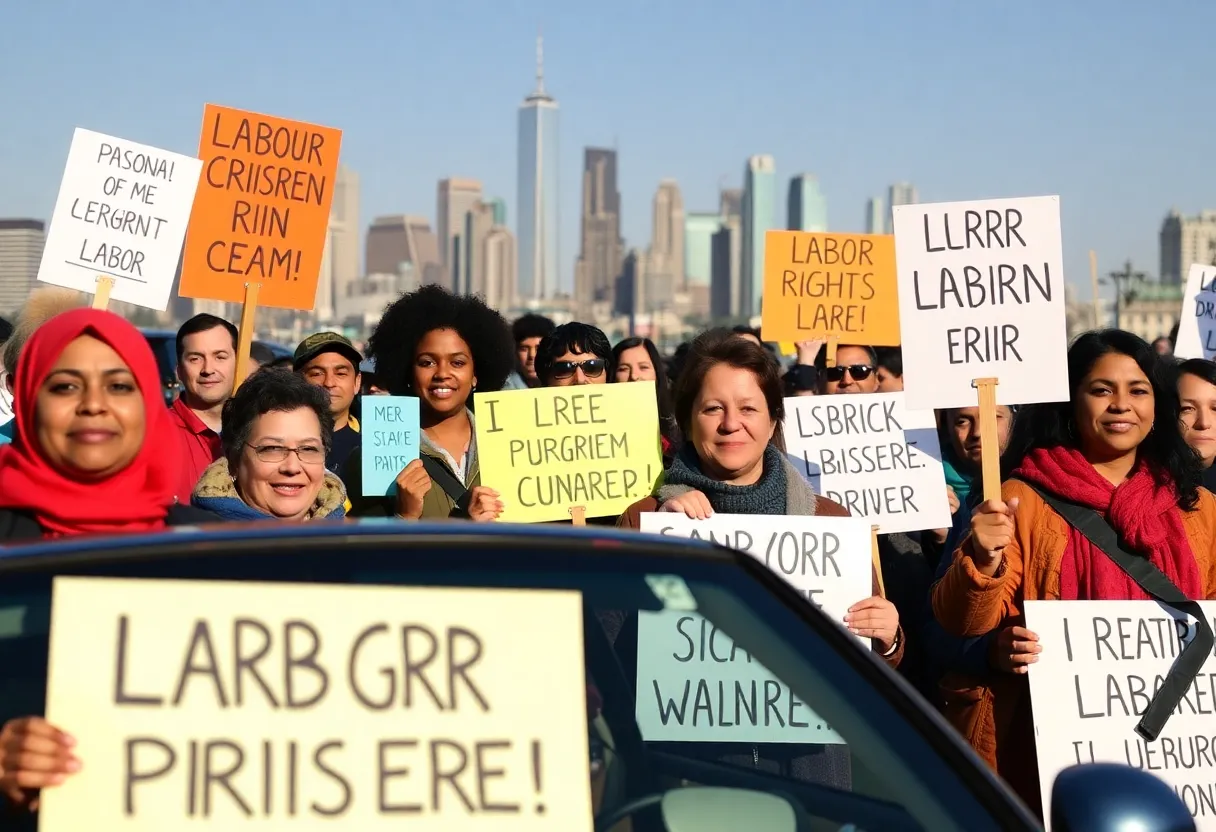California, August 30, 2025
News Summary
California lawmakers have achieved a landmark agreement with Uber and Lyft, granting rideshare drivers the right to unionize and negotiate for better pay and benefits. Supported by Governor Gavin Newsom, this deal also includes reducing mandatory insurance coverage for rideshare companies, significantly impacting gig economy regulations. Although seen as a victory for labor rights, concerns remain regarding protections for strikes and data transparency. This agreement could serve as a model for other states addressing similar challenges in the gig economy.
California lawmakers have reached a landmark agreement with rideshare giants Uber and Lyft, enabling rideshare drivers to organize and unionize, a significant step in labor rights. Announced on Friday, the agreement will promote collective bargaining for better pay and improved benefits for the state’s rideshare workforce. This deal also comes with adjustments to insurance mandates for rideshare companies, marking a notable turn in the landscape of gig economy regulations.
The agreement, which has received support from Governor Gavin Newsom, is viewed as a victory for workers who have long sought more rights and protections. With this legislation, drivers can now choose a union representative and negotiate their working conditions. In return for facilitating unionization, California leaders are proposing new legislation aiming to lower mandatory insurance requirements for rideshare operators, which currently stand at $1 million per incident. The new proposal would bring this figure down to $300,000.
These insurance changes are anticipated to decrease overall ridesharing costs for passengers while potentially boosting earnings for the drivers. Uber and Lyft will benefit from reduced insurance fees under the new agreement, making it a mutually beneficial outcome. It is seen as a collaborative effort between the tech companies and state lawmakers, which Governor Newsom has emphasized as a significant achievement in balancing business interests and labor rights.
California’s law currently classifies drivers as independent contractors, limiting their access to traditional unionization avenues. The passage of Proposition 22 in 2020 had previously redefined driver classification, complicating efforts to unionize. However, recent judicial rulings opened pathways for legislative actions like this agreement.
The legislation requires drivers to gather signatures from at least 10% of active drivers to initiate the certification process for a union. Although the agreement is a groundbreaking step forward for rideshare operators in California, it does not extend to other categories of gig workers, such as those delivering food.
Advocates, including the Service Employees International Union (SEIU) California, have hailed the agreement as a major accomplishment after a prolonged effort for workers’ bargaining rights. Parallels are drawn to Massachusetts’ recent initiatives, which also allow drivers to form unions. Support is strong among state legislative leaders, such as Assembly Speaker Robert Rivas and Senate Pro Tem Mike McGuire, indicating a smooth path for the approval process in the California Legislature.
While there is optimism around drivers benefiting from collective bargaining, concerns linger regarding the effectiveness of the agreement, particularly in aspects like protections for strikes and the transparency of worker data. Many drivers hope that this new framework could lead to fairer treatment and better working conditions, addressing ongoing issues of unjust deactivations by rideshare companies.
As this agreement advances, it could serve as a model for other states looking to address similar challenges faced by gig economy workers, making this a pivotal moment in the ongoing discussion about labor rights in the gig economy.
FAQ
What does the agreement between California lawmakers and Uber and Lyft entail?
The agreement allows rideshare drivers to unionize and negotiate collectively for better pay and benefits while reducing insurance mandates for rideshare companies.
What changes are being made to insurance requirements under this agreement?
The insurance coverage for rideshare drivers will be reduced from $1 million per incident to $300,000, potentially lowering costs for passengers and improving driver earnings.
How can drivers initiate the certification process for a union?
Drivers are required to collect signatures from at least 10% of active drivers to petition for certification of a union.
Does this agreement apply to all gig workers in California?
No, the agreement specifically applies to rideshare drivers and does not extend to other gig workers, such as those in food delivery.
What are some concerns regarding the new agreement?
Critics note that the agreement lacks protections for strikes and does not ensure complete transparency regarding workers’ data.
Key Features of the Agreement
| Feature | Description |
|---|---|
| Unionization Rights | Rideshare drivers can organize and bargain collectively. |
| Insurance Mandates | Reduction of mandatory insurance coverage from $1 million to $300,000. |
| Certification Process | Drivers must collect signatures from 10% of active drivers to initiate union certification. |
| Applicable Workforce | Agreement specifically for rideshare drivers, excluding other gig workers like food delivery personnel. |
| Support and Backing | Strong support from state legislative leaders and organizations advocating for workers’ rights. |
Deeper Dive: News & Info About This Topic
- Los Angeles Times
- Politico
- TechCrunch
- Encyclopedia Britannica: Labor Union
- Google Search: California Uber Lyft unionization

Author: STAFF HERE BEVERLY HILLS WRITER
The Beverly Hills Staff Writer represents the experienced team at HEREBeverlyHills.com, your go-to source for actionable local news and information in Beverly Hills, Los Angeles County, and beyond. Specializing in "news you can use," we cover essential topics like product reviews for personal and business needs, local business directories, politics, real estate trends, neighborhood insights, and state news affecting the area—with deep expertise drawn from years of dedicated reporting and strong community input, including local press releases and business updates. We deliver top reporting on high-value events such as the Rodeo Drive Concours d'Elegance, the Beverly Hills artSHOW, Concerts on Canon, and holiday celebrations throughout the city. Our coverage extends to key organizations like the Beverly Hills Chamber of Commerce and Visit Beverly Hills, plus leading businesses in luxury fashion, hospitality, and entertainment that drive the local economy. As part of the broader HERE network, including HERELosAngeles.com, HERESantaAna.com, HEREHuntingtonBeach.com, and HERECostaMesa.com, we provide comprehensive, credible insights into Southern California's dynamic landscape.



